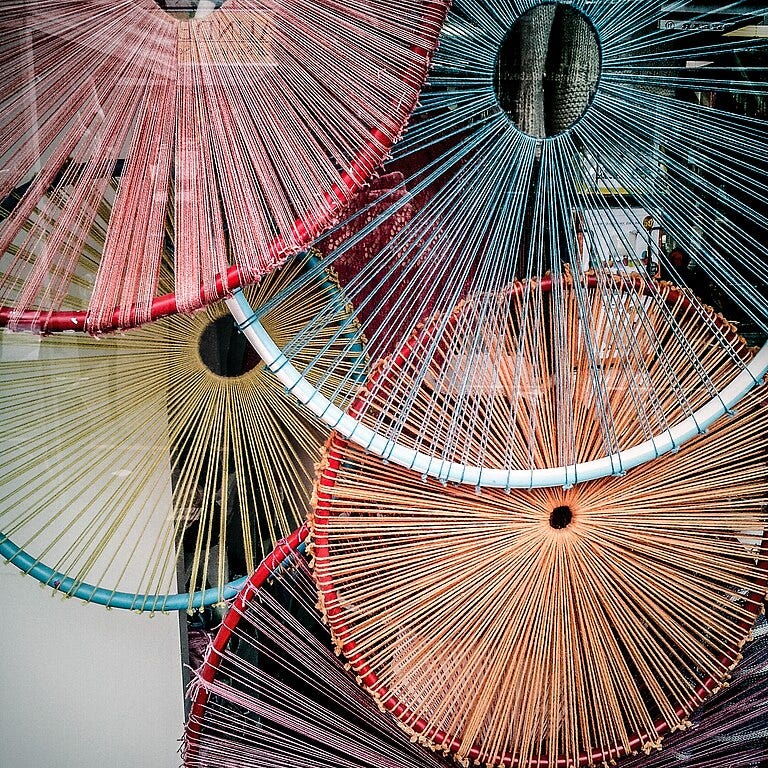Wheel Within Wheel
Blake, Berry, and What We Owe to Cesar : The Word in the Wild, Proper 24, Year A
Yesterday morning I took a walk, up the concrete sidewalks, past a busy intersection and eventually to a patch of forest preserved in a park. There was much movement—cars heading to work and school, newly arrived birds, feeding in the fresh fall air. Phoebes, Golden-crowned Kinglets, Yellow-bellied Sapsuckers—all were in abundance. As I walked, acorns crunching accompanied my every step. The squirrels and jays busy storing the orange nuts in tree cavities or planting another generations of oaks in their forgetful caches in the ground.
I was thinking, as I walked, about rendering to Cesar what is Cesar’s. It is one of my favorite Gospel incidents because, as I’ve come to read it, this is a passage in which Jesus shows his mischievous, subversive humor. Here he is in the Temple, where no graven images are allowed and thus no Roman coins. And yet, somehow a Pharisee (or maybe it was a Herodian) seems to have a coin, one that likely had some inscription attributing divinity to Cesar. To show the image and read such an inscription would have been blasphemous. I can see Jesus’ wry smile as he responds to the trap: “render unto Cesar that which is Cesar’s, and God what is God’s,” which is in effect to say, “give Cesar his blasphemous idolatry and worship the true God who actually rules the world.”
Walking, in this morning world filled with the movement of both the manufactured and the given, I wondered if what is God’s and what is Cesar’s might also tell us something about the overlapping economies in which we live. There’s an excellent essay by Wendell Berry called “Two Economies,” in which Berry searches for a form of value that can encompass all that is truly valuable. In a conversation with his friend Wes Jackson, Berry settles on the “kingdom of God” as the only sufficiently large realm. Berry goes on, for the purposes of his essay, to call this system of value the “Great Economy.” It is in this economy where real value comes and everything, even the fall of a sparrow, is accounted for.
The human economy—the economy in which we make judgements of use and value—is within this larger economy. The merely human, small economy gets into trouble when it fails to recognize its subsidiarity. All too often, we believe that we are the creators of value and its true judge. It is when this happens that an economy begins to become idolatrous, even Satanic. Berry draws on William Blake’s reference to the “Satanic wheels” and “Satanic mills” as instances of this blasphemous economy. What Blake saw in his day, and Berry in ours, is surely the same kind of economy represented by the Roman coin bearing Cesar’s image—an economy of Empire that proposes to be the true arbiter of value.
For Blake, facing the Industrial Revolution, the “Satanic wheels” were marked by a particular kind of movement. They were “wheel without wheel, with cogs tyrannic/Moving by compulsion each other.” Berry explains that Blake meant by this that “one wheel can turn another wheel outside itself only in a direction opposite to its own.” This is fine as a mechanism, but as Berry goes on to say, “it becomes ‘Satanic’ when it becomes a ruling metaphor and is used to describe and to organize fundamental relationships.” In the Industrial Revolution, all the world was becoming a machine to be turned by such cogs, producing a human economy moving ever more against the Great Economy of God’s kingdom. We are now reaping the results of that turning.
Blake presented another wheel, however. This “Edenic wheel” is a “wheel within wheel in freedom resolve, in harmony and peace.” Such an image is a vision of the harmony at the very heart of God, represented in Ezekiel 1:15-21. To move our human economies, not against, but within the Great Economy of God is to join in a different kind of movement, one without the friction.
Walking, I saw a small garden, planted with a variety of native plants. In it were several small birds, foraging seeds and seeking shelter in its tangle. Here was human work and effort moving in common motion with the Great Economy, here was a form of receiving value and rendering to God what is God’s.
Walking back, I was joined again with the noise and rush of traffic, cars speeding past, their wheels pushing with traction against the pavement. What would it mean for these wheels to move within God’s great economy? I don’t have an easy answer, but I knew for that moment that walking along side them, I’d entered into a different rhythm and pace. Let Cesar have the cars with their speed; there is a grander, slower world waiting, if we can look past the blasphemies of our calculations and receive the given world with all its gifts.





A lovely and tightly-knit reflection. Thank you for sharing it!